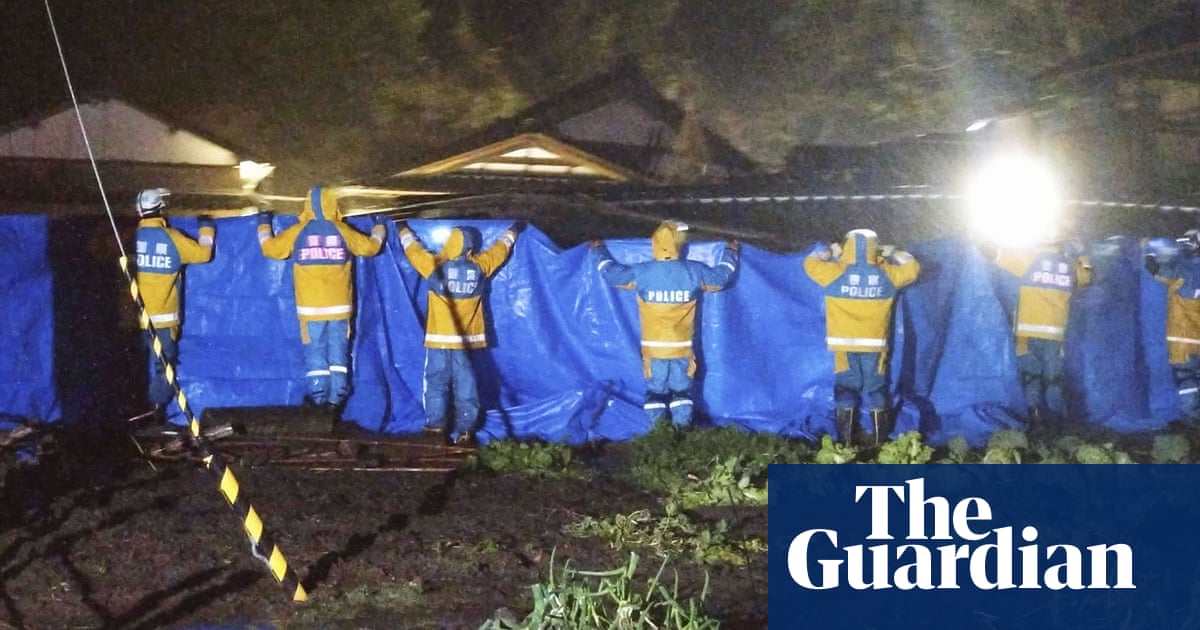
After a powerful earthquake struck western Japan, causing destruction and claiming the lives of 126 individuals, a 90-year-old woman was miraculously rescued from the rubble of a collapsed house after 124 hours. The disaster also resulted in building collapses and landslides.
The woman, who was located in Suzu city in Ishikawa prefecture, managed to survive for over five days following the 7.6 magnitude earthquake on Monday. Video footage from a national broadcast showed rescue workers wearing helmets and using blue plastic to cover the area, making it difficult to see the woman.
The likelihood of survival decreases after the initial 72 hours. In the recent days, there have been multiple notable rescues carried out by military personnel, firefighters, and others who have joined in the extensive search and rescue mission.
Unfortunately, one of the 126 fatalities was a young child, only five years old. This little boy had previously been injured by scalding water during the earthquake and was in the process of healing. However, his condition took a turn for the worse and he passed away on Friday, as reported by Ishikawa prefecture, the area most affected by the disaster.
Officials issued a warning that additional homes could be buried and essential roads for aid distribution could become obstructed due to aftershocks. There is also a concern that already damaged roads could completely collapse, especially with the forecast of rain and snow on Saturday night and Sunday.
Wajima city has reported the most deaths at 69, followed by Suzu with 38. Over 500 individuals were injured, with a minimum of 27 sustaining serious injuries.
The earthquake caused roofs to be scattered on roads and buildings below to be flattened. The roads also became distorted, resembling rubber. A fire in Wajima destroyed an entire neighborhood.
Over 200 individuals are currently missing, although the exact count has varied. Eleven individuals were said to be stuck under two collapsed houses in Anamizu.
At the age of 76, Shiro Kokuda experienced the devastation of seeing a nearby temple burn while his childhood home in Wajima remained intact. He searched for his friends at evacuation centers, feeling the weight of the difficult situation.
Ishikawa and its neighboring areas in Japan are facing a significant decline in population due to the country’s rapidly ageing society. As a result, the already weak economy, which relies heavily on traditional crafts and tourism, has become even more vulnerable.
The official Korean central news agency reported on Saturday that North Korean leader Kim Jong-un made an unexpected move by expressing his condolences to Japanese Prime Minister Fumio Kishida.
Earlier, Japan received messages of sympathy and promises of aid from US President Joe Biden and other allies.
Yoshimasa Hayashi, a spokesperson for the government, informed journalists that Japan appreciated all of the messages received, including one from North Korea. Hayashi noted that the last time Japan received a message of condolence from North Korea for a disaster was in 1995.
According to the Yomiuri newspaper, a nationwide aerial survey revealed over 100 landslides, including some that were obstructing important roads. As a result, certain areas are still cut off and in need of assistance.
“I have faith that the city will bounce back, and I hope its residents will not flee, but instead remain here to diligently work towards recovery,” expressed Seizo Shinbo, a seafood merchant as he stocked up on noodles, canned goods, and rice balls at a supermarket.
“There is a lack of food, water, and gas, causing people to wait in long lines that stretch for kilometers.”
Source: theguardian.com



















